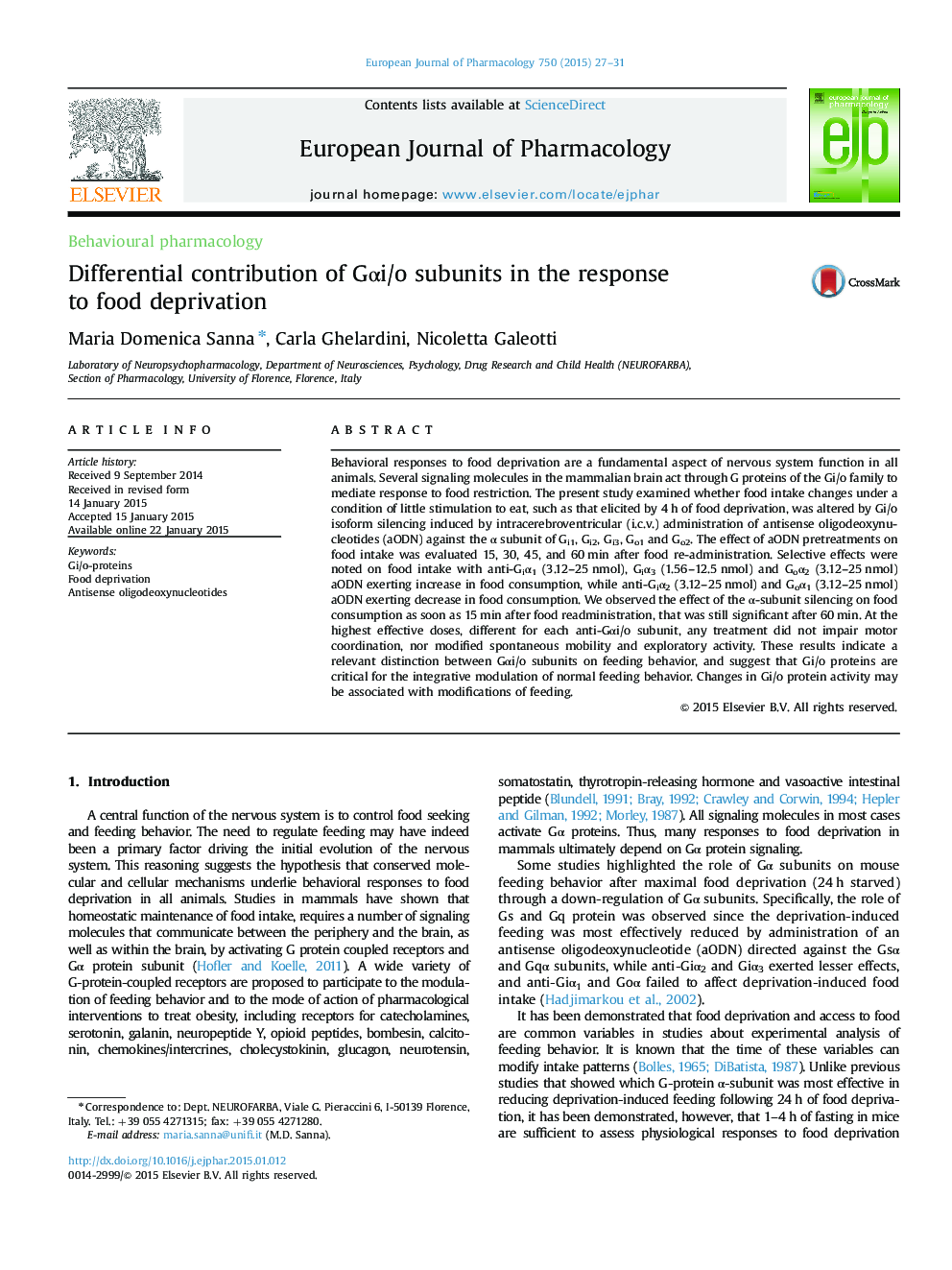| کد مقاله | کد نشریه | سال انتشار | مقاله انگلیسی | نسخه تمام متن |
|---|---|---|---|---|
| 5827506 | 1558931 | 2015 | 5 صفحه PDF | دانلود رایگان |

Behavioral responses to food deprivation are a fundamental aspect of nervous system function in all animals. Several signaling molecules in the mammalian brain act through G proteins of the Gi/o family to mediate response to food restriction. The present study examined whether food intake changes under a condition of little stimulation to eat, such as that elicited by 4 h of food deprivation, was altered by Gi/o isoform silencing induced by intracerebroventricular (i.c.v.) administration of antisense oligodeoxynucleotides (aODN) against the α subunit of Gi1, Gi2, Gi3, Go1 and Go2. The effect of aODN pretreatments on food intake was evaluated 15, 30, 45, and 60 min after food re-administration. Selective effects were noted on food intake with anti-Giα1 (3.12-25 nmol), Giα3 (1.56-12.5 nmol) and Goα2 (3.12-25 nmol) aODN exerting increase in food consumption, while anti-Giα2 (3.12-25 nmol) and Goα1 (3.12-25 nmol) aODN exerting decrease in food consumption. We observed the effect of the α-subunit silencing on food consumption as soon as 15 min after food readministration, that was still significant after 60 min. At the highest effective doses, different for each anti-Gαi/o subunit, any treatment did not impair motor coordination, nor modified spontaneous mobility and exploratory activity. These results indicate a relevant distinction between Gαi/o subunits on feeding behavior, and suggest that Gi/o proteins are critical for the integrative modulation of normal feeding behavior. Changes in Gi/o protein activity may be associated with modifications of feeding.
Journal: European Journal of Pharmacology - Volume 750, 5 March 2015, Pages 27-31